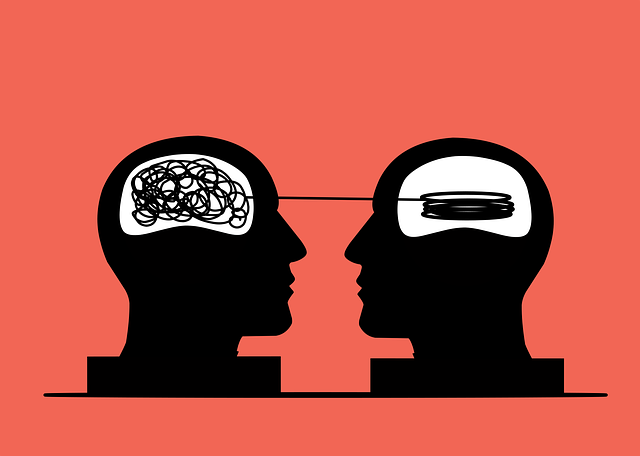Creating an inclusive, supportive environment is Superior Gender Identity Therapy's cornerstone. Facilitators use non-binary language and empathy-building techniques like active listening to reduce burnout and promote understanding among diverse group members. Interactive activities challenge gender stereotypes, fostering safety for self-expression and strengthening bonds. This approach enhances mental wellness, empowers participants, and provides a supportive journey for all.
Mental wellness group facilitation is a powerful tool for fostering connection and growth. This article explores dynamic techniques for leading inclusive spaces, focusing on understanding complex group dynamics and implementing evidence-based practices. We delve into strategies tailored for addressing gender identity issues in mental health settings, emphasizing the importance of active listening for creating supportive environments. By embracing these methods, facilitators can enhance therapeutic outcomes, particularly in Superior Gender Identity Therapy, promoting a safe and empowering atmosphere for all participants.
- Understanding Mental Wellness Group Dynamics
- Facilitation Techniques for Inclusive Spaces
- Strategies for Addressing Gender Identity Issues
- Enhancing Supportive Environments through Active Listening
Understanding Mental Wellness Group Dynamics

In mental wellness group settings, understanding dynamic interactions is key to facilitating a supportive and therapeutic environment. Group members bring diverse experiences, beliefs, and challenges, creating a complex yet powerful social fabric. Effective facilitation involves recognizing and navigating this dynamics, fostering open communication, and promoting empathy among participants. By embracing the unique identities and perspectives within the group, facilitators can create a safe space where individuals feel empowered to share their stories and support one another.
Gender identity therapy, as part of this dynamic landscape, requires specialized techniques. Encouraging positive thinking and employing effective communication strategies are essential tools for building a supportive community. Facilitators should be adept at fostering empathy, creating an atmosphere where members feel heard, respected, and understood. This approach not only strengthens the group’s bond but also enhances individual growth and recovery journeys, ensuring everyone feels valued and supported in their mental wellness journey.
Facilitation Techniques for Inclusive Spaces

Creating an inclusive space is paramount when facilitating mental wellness groups, especially when focusing on Superior Gender Identity Therapy. It involves a nuanced approach to ensure every participant feels seen, heard, and respected. One effective technique is adopting a non-binary facilitative model, where the leader avoids assumptions about gender and uses inclusive language. This simple step significantly contributes to burnout prevention strategies for healthcare providers by fostering an environment free from potential triggers.
Additionally, incorporating interactive activities that promote self-expression and group bonding can enhance mental wellness. These could include icebreakers that challenge gender stereotypes or discussion prompts encouraging personal narratives. The goal is to weave a tapestry of experiences where individuals feel safe to explore their identities and share their journeys. Such an atmosphere not only aids in anxiety relief but also empowers participants to navigate their mental health journeys with support and understanding.
Strategies for Addressing Gender Identity Issues

Addressing gender identity issues within a mental wellness group setting requires a nuanced approach that fosters an inclusive environment. Superior Gender Identity Therapy involves techniques aimed at enhancing understanding and acceptance, both for individuals navigating their identity and for fellow group members. Facilitators can employ empathy-building strategies to create safe spaces where participants feel heard and respected. This may include active listening exercises, encouraging personal narratives, and promoting open dialogue without judgment.
Group activities focused on stress management workshops can also be beneficial. By organizing these sessions, facilitators can teach coping mechanisms tailored to the unique challenges faced by individuals with diverse gender identities. Incorporating these techniques into a structured yet flexible framework allows for a supportive environment where members can learn from one another. Additionally, producing a mental wellness podcast series featuring stories and discussions around gender identity can further engage participants, offering valuable insights and promoting community within the group.
Enhancing Supportive Environments through Active Listening

Creating a safe and supportive environment is paramount for effective group facilitation, especially when dealing with sensitive topics like mental wellness and gender identity. Active listening serves as a powerful tool to enhance this space. Facilitators can cultivate an atmosphere of understanding by giving undivided attention to each participant’s experiences and perspectives. This involves not just hearing the words but comprehending the emotions and nuances conveyed through body language and tone of voice. By practicing active listening, facilitators create a sense of validation and encourage open communication.
In the context of Superior Gender Identity Therapy, this technique is invaluable. It allows for the exploration of diverse gender expressions and identities while fostering empathy within the group. Compassion cultivation practices, combined with effective communication strategies, enable participants to share their stories without fear of judgment. Self-awareness exercises can further strengthen this process, helping individuals recognize and appreciate the unique contributions each brings to the group dynamic, thereby strengthening the overall supportive environment.
Mental wellness group facilitation is a powerful tool that can create transformative experiences. By understanding group dynamics and employing inclusive techniques, facilitators can foster environments that support all individuals, regardless of gender identity. Active listening enhances connections and ensures every voice is heard, fostering a sense of belonging. These strategies, when implemented with care, can revolutionize mental wellness support, making it accessible and beneficial for everyone, especially in the context of Superior Gender Identity Therapy.














